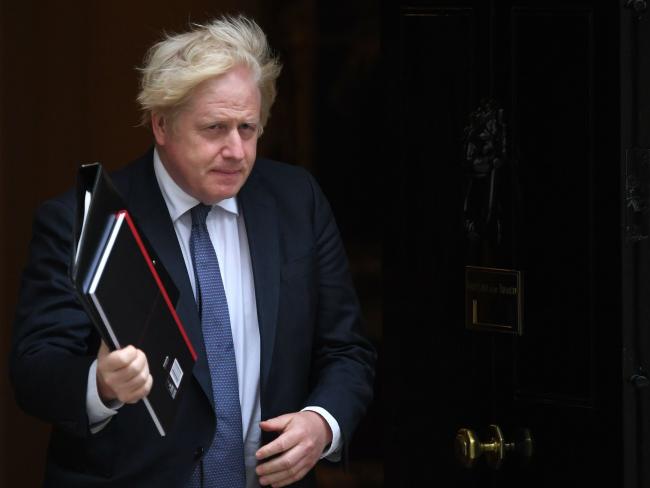(Bloomberg) -- U.S. President Joe Biden faces calls from his closest allies to extend the deadline for the evacuation in Kabul as fears grow that the fast-approaching cutoff will create even greater chaos.
The airlift will dominate a virtual Group of Seven summit Tuesday, convened by U.K. Prime Minister Boris Johnson just a week before the Aug. 31 date set by Biden to complete the withdrawal of U.S. troops. The American exit ultimately accelerated the rapid Taliban takeover and collapse of the Afghan government.
Removing foreigners and Afghans, whose ties to outside powers leave them vulnerable to Taliban reprisals, will be much harder once U.S. forces leave. Western leaders are concerned that if troops have to be out within a week, civilian evacuations will have to end sooner.
With time running out, European allies are expected to seek a delay to the deadline. Biden has already conceded an extension may be necessary yet a Taliban spokesman warned of “consequences” if the U.S. postpones its withdrawal, calling Aug. 31 a “red line.”
That position complicates matters, even as Johnson and Biden spoke on the eve of the G-7 call and agreed to “continue working together to ensure those who are eligible to leave are able to.”
Criticism
U.S. National Security Advisor Jake Sullivan declined to preview Biden’s remarks to the G-7, saying only that “the president continues to consult with the prime minister and our other allies on how this evacuation should proceed from here.” U.S. officials have also not said how many Americans have been evacuated from Afghanistan.
U.S. and European governments have been slapped with stinging criticism over their failure to predict the pace at which the Taliban would surge into Kabul. And the political fallout could intensify if an abrupt end to evacuations results in thousands of eligible Afghans being left behind.
“I think we all understand that view,” Pentagon Press Secretary John Kirby (NYSE:KEX) told reporters on Monday. He declined to comment on extending the deadline beyond saying that Defense Secretary Lloyd Austin and Biden will discuss options when the time comes.
American military officials are talking with the Taliban “several times a day” to coordinate evacuation efforts, he said. Top European diplomats also described efforts to extend the operation.
French Foreign Affairs Minister Jean-Yves Le Drian said his government is concerned” about the U.S. deadline and that a delay is “necessary to properly achieve the ongoing operations,” Agence-France Presse reported.
His German counterpart, Heiko Maas, said Berlin is working with the U.S. and Turkey -- which has helped guard Kabul’s airport for years -- and the Taliban to help extend the evacuation.
Tuesday’s meeting could expose tensions between Biden and the rest of the G-7. According to a British diplomatic memo, the U.S. president told the bloc in June he’d maintain enough of a security presence in Afghanistan to ensure they could continue to operate in Kabul following the main U.S. withdrawal.
Biden Assured Allies in June U.S. Would Ensure Kabul’s Stability
In any event, the U.S. drawdown saw the Afghan government rapidly collapse. A spokesman for Johnson declined to comment when asked if relations between the two leaders had been affected. In a statement ahead of the meeting, the U.K. said G-7 leaders are “expected to reiterate their commitment to safeguarding the gains made in Afghanistan over the last 20 years.”
But recent events have served as a reality check for America’s allies, amid questions over their ability to go it alone as the U.S. focus shifts under Biden. The U.K., for example, made clear that staying in Afghanistan isn’t viable.
“We are going to need to leave the airport at the same time as the Americans,” Johnson’s spokesman, Max Blain, told reporters.
©2021 Bloomberg L.P.

